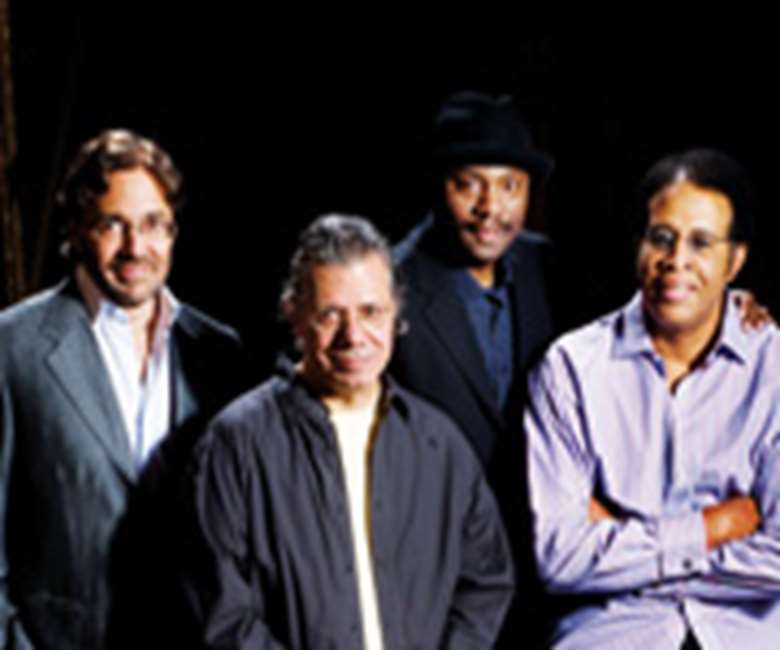Return To Forever - Blast from the past
Wednesday, August 6, 2008
A historic reunion this year has seen the coming together once again of one of the most seminal and influential jazz-rock bands of the 1970s, Return To Forever. Bringing the line-up of Chick Corea, Stanley Clarke, Al Di Meola and Lenny White together to tour has been a long time in the planning with the tour also coinciding with an anthology that cherry picks the best tracks from the line-up’s heyday in the 70s. Andy Robson hears from Chick Corea and Stanley Clarke about the band’s day in the sun and how everyone concerned has had to put past differences aside to make the comeback a reality once again.

As you read this, the juggernaut that is the reformed Return To Forever world tour will already have passed through the O2 venue in London, the band’s only UK date. You’d be forgiven for believing that Return To Forever were simply the power quartet that was Corea, Clarke, Di Meola and White, playing unfeasibly loud and impossibly fast.
But the Return To Forever franchise was always more than that stellar quartet. Indeed it covered a variety of bands which reflected the turbulence of the 1970s as jazz sought to discover new voices and new idioms in a world which was now amplified, electrified and terrified of a new challenge to its very being: rock music.
In many ways the story of Return To Forever is not the story of jazz fusion, a genre which many people, especially critics, shun. It is not a story contained within the 1970s, the decade that fashion forgot but is the tale of how a generation of musicians faced not only the musical but also the spiritual and technological challenges of their day. You may not be interested in the dollar-spinning caravan that is RTF, but to ignore the roots of Return To Forever is to ignore the routes of how we got to where we are today.
Yet Chick Corea’s introduction to electric instruments was hardly inspiring.
“‘You’re playing that,’ said Miles, then he walked off,” says Chick Corea chuckling at the memory. “That” was a Rhodes electric piano which Chick Corea could barely tell one end of from the other but when Miles said “play”, well, who was Corea to argue? “I personally struggled with the Rhodes,” explains Corea, revelling in the memories even though we are talking only the day after the R2F world tour has begun.
“Herbie (Hancock) took to it a little more easily than I did. But I got to like the Fender Rhodes a lot. Not least because people got to hear me! But the first leap in volume I had to deal with wasn’t to do with going electric. It was Tony Williams. I was with Tony for six months before he left the band. He was playing full out thrust on the drums, so loud. We had an acoustic bass – I should ask Dave (Holland) but I don’t remember there being a bass amp – and I’d play whatever piano was presented to us at a gig, and they were usually pretty bad pianos. I don’t think anyone heard me play a note for those six months! So the electric piano was a little bit of a saviour from that sonic imbalance in that I was now able to match the level of the drumming.”
This is an extract from Jazzwise Issue #122 to read the full feature and receive a Free CD Subscribe Here ...